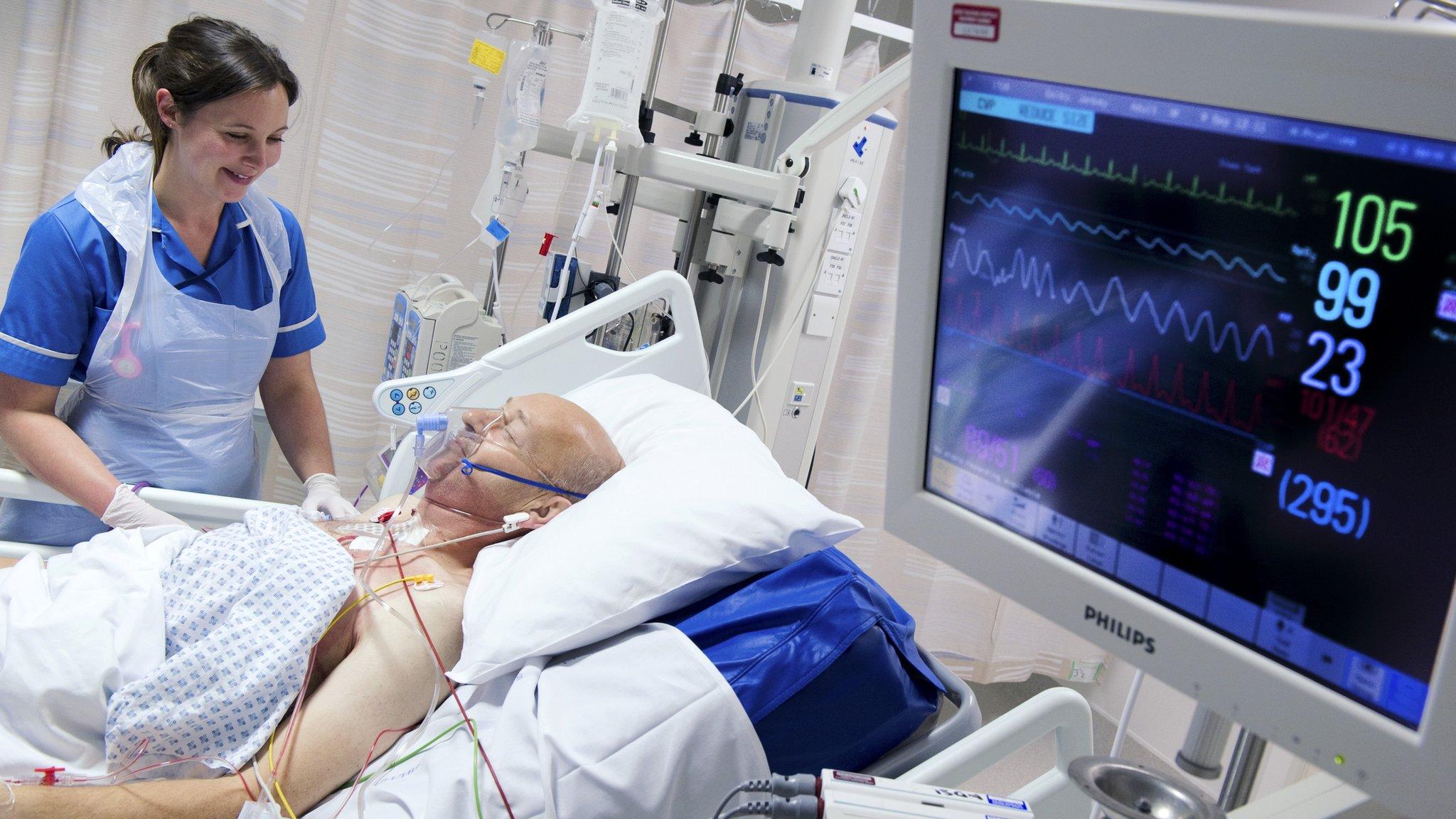Critically-ill children 'need more aftercare'
- Published
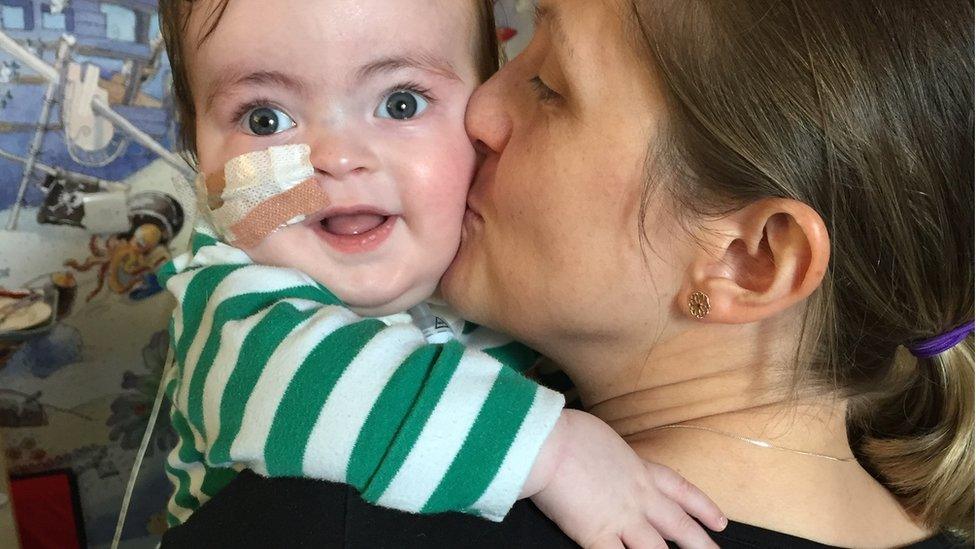
Sam spent months in intensive care
When he was just six months old, Sam went into intensive care for several months after a severe infection left him unable to breathe properly. The stress of that experience still affects Sam and his family now. As evidence emerges of the long-term impact of critical illness, do survivors need more specialist psychology support?
"Sam is a remarkably happy and sociable child, but does react to sudden loud noises by getting very distressed and holding his breath," says Jo, his mother.
"He also gets very upset when he has to go through medical procedures," she adds.
"I can't help feeling that it might be frustration at not being able to express himself."
Sam was admitted to the paediatric intensive care unit (PICU) at Addenbrooke's Hospital in Cambridge and needed ventilation for several months, followed by a prolonged stay in hospital. He is now 18 months old.
'Terrified and helpless'
Although the family was reassured by the medical care he received, it was a very anxious time for them.
Jo, whose full name we have agreed not to use, says: "We felt terrified and helpless, but also strangely numb as if you are watching it all happen to somebody else."
The unit Sam was transferred to was also 60 miles away from their home, which had a huge impact on family life.
"Our family has been under a lot of strain - we have not been together in the same house overnight for several months.
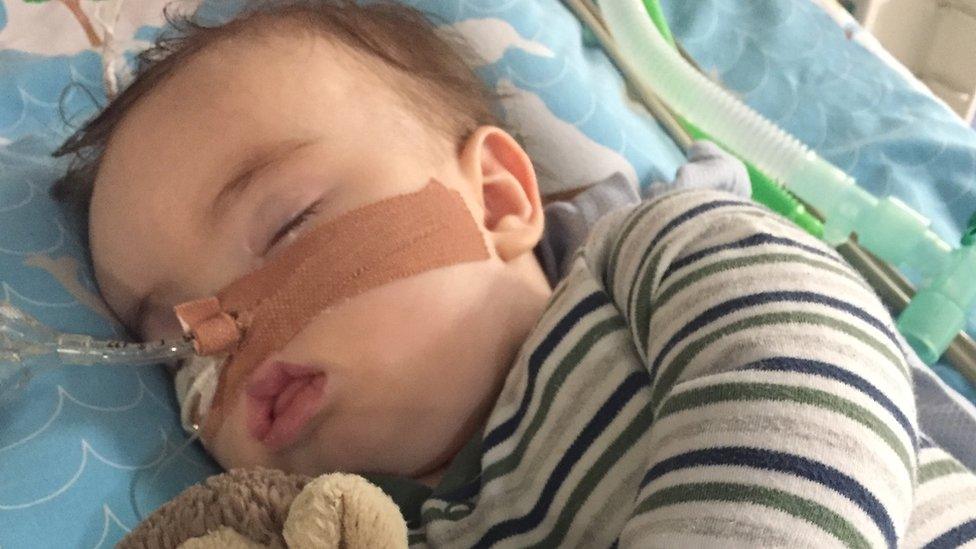
"It has affected our work and home life, and has not allowed for much quality time together or individually," Jo says.
Medical and nursing staff were key to reassuring Sam's parents in the early days of his admission, but the impact of his illness on the family's well-being is becoming apparent.
Whole family impact
Life-saving procedures and drugs are important in treating someone who is critically ill. But in the long term, survivors may suffer flashbacks, delirium and post-traumatic stress.
When it is a child whose life is saved, the mental health effects can extend to parents and siblings. Anxiety and stress may crop up as a reaction to what they have seen.
As with the majority of children discharged from intensive care, a formal psychology follow-up has not been arranged for Sam.
His mother says: "I don't feel that we need extra psychology support at the moment. I'm sure when we eventually have a chance to sit down and think about things, the strain may start to show."
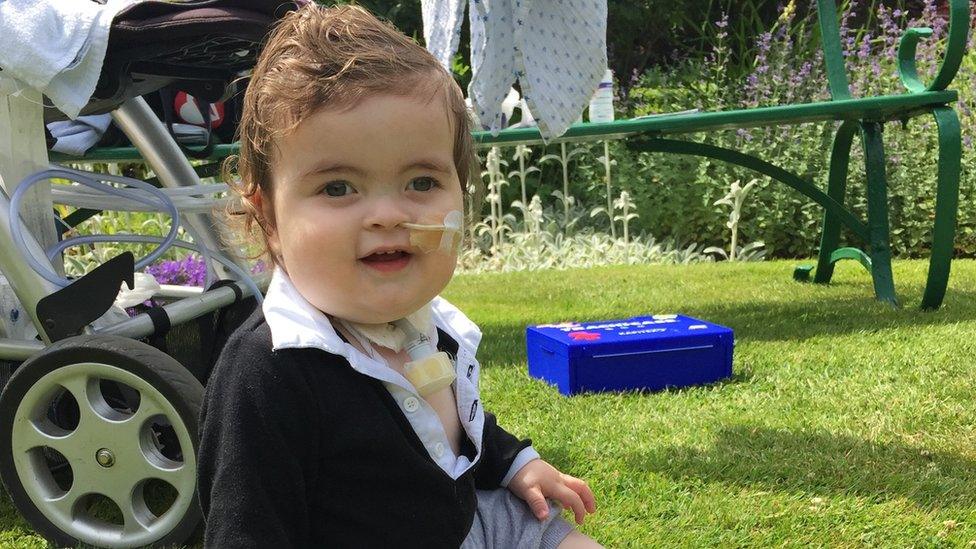
Sam was transferred to a paediatric intensive care unit 60 miles from his home
She is also worried about the impact on her daughter, who is five years old.
"She is too young to be considered a young carer but is old enough to be affected by the situation. There doesn't appear to be any support group or help available for her age group."
There is an overload of information and stressful events in the first few days of a PICU admission. Parents report feeling anxious and isolated.
A report in the Journal of Pediatrics, external outlines the extent of the problem.
Researchers found that up to two-thirds of children may have post-traumatic stress symptoms after being critically ill. A third still have problems a year later.
Sam's consultant, Dr Riaz Kayani, says that having a critically ill child is "an incredibly traumatic experience".
"Whilst parents and families are well supported as inpatients, that isn't available after discharge. Hospitals and community care need to work together to ensure families get the support they need."
'Forms a bond'
Dr Gillian Colville, a clinical psychologist at St George's Hospital in London, has studied post-traumatic stress and anxiety in children and their families after critical illness for the last 26 years, and says it is known that people struggle psychologically after an admission to a paediatric intensive care unit.
She says these units have a responsibility to think about this as part of their discharge planning process.
"PICU psychologists make contact with families from an early stage of illness. This forms a bond that can really help the support to recovery."
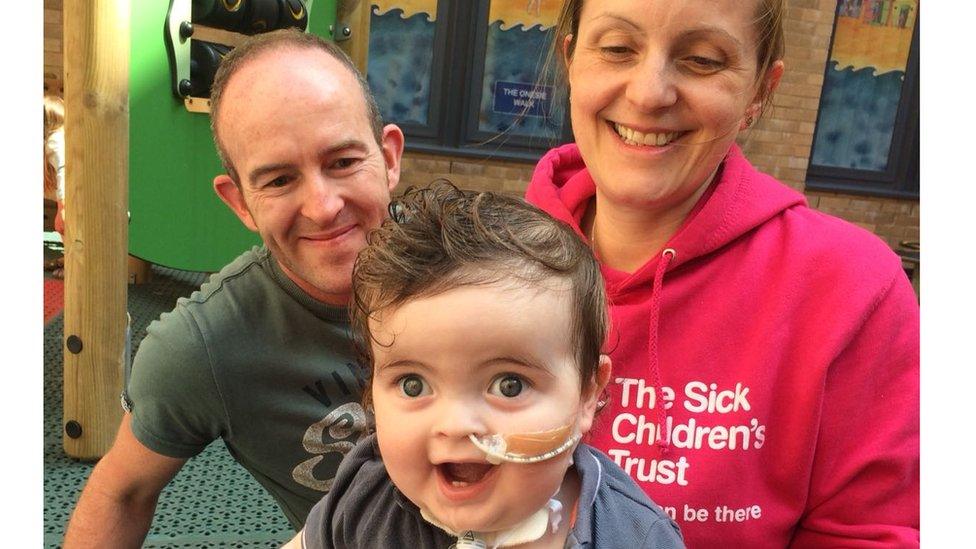
Sam's family has been under a lot of strain during his illness
Dr Colville explains that clinical psychologists use a therapy that encourages people to look at their traumatic experience in a positive way, as an important element of their lives - but there are other hurdles.
"The long-term follow up of patients and families is problematic, and lack of money means there just aren't enough of us to help everyone who needs it."
While there are not always enough trained psychologists to provide specialist support, some units employ a Family Liaison Sister. After children go home, their GPs can help by referring family members for further mental health support as appropriate.
Dr Peter-Marc Fortune, president of the Paediatric Intensive Care Society, said: "The psychological impact of critical illness on our patients, their families and the staff caring for them is significant.
"Unfortunately, at the current time very few of our units have adequate resources to provide the level of psychological support that we recommend in our national standards of care."
The Department of Health and Social Care has been approached for a comment.
Follow Nazima on Twitter, external.
- Published28 May 2013
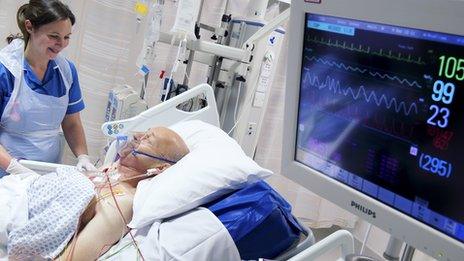
- Published29 May 2013
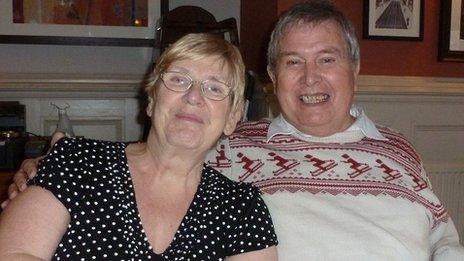
- Published14 October 2012
